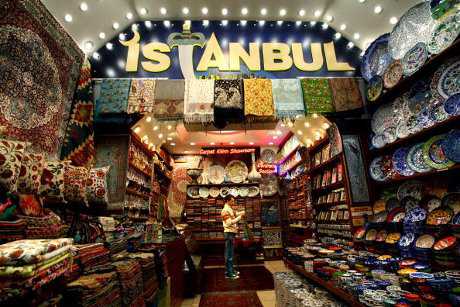A loud microphone emits prayers from a nearby mosque on a Friday morning. Those waking up to the sound either had a long night or are a part of the minute non-Muslim population of Turkey.
I visited Istanbul for just a little over a week, and one of the most notable differences from Western Europe or the U.S. is the significance of religion. Whether it is the resplendent Sultan Ahmed Mosque or the sky reaching minarets nearby, Islam and its customs are hard to avoid.
After I woke up myself in accordance with the voluble prayers, I was presented with a unique circumstance. I was staying at a friend of mines family home and his mother was ardently at work in the kitchen preparing breakfast. She placed out the bread and cheeses, with and without salt, along with a chai (everyday black tea). We then got lost in a conversation that lasted upwards of five hours.
Initially she was curious as to why an American would be visiting Istanbul, in turn having a plethora of questions ranging from fast-food to politics directed at me. Just expect it, everyone you meet abroad loves to talk about Republicans. After the ground work was laid and she realized I wasn’t there to criticize or rudely impose (a perception they often have of Americans), we began discussing their family’s relationship with religion.
The most fascinating fact was the hardships of being a part of a secular family. She grew up with Islam and practiced for the majority of her life, but as time went on, a few conclusive insights surfaced. As she and the other women were forced to stand in the back of the mosque while the men worshiped in the front and other various impediments on women went without question, it did not sit well with her. At the point in which she decided to stop practicing Islam because of moral gripes, many aspects of her and her family’s life changed.
Given that 99% of the Turkish population are regularly practicing or have Muslim background, it is a very small population that renounces Islam. Of course, being in the most populated city of Turkey, it is less of an issue when family’s and especially the youth are independent of practicing Islam. Nonetheless, the range of friends I have from Turkey, mainly from the ages of 20 to 28, are about split in those who do and do not practice religion.
After about five refills of tea making my heart rush, we got into how much of an effect there is on daily life for families outside of Islam. For her, the main divide was present within the community. Muslim’s have their friends from services and those they live in the neighborhood, whereas those without Islam, have limited community life to rely on. Whether it is mere gossip or get-togethers, those outside of religion are not exposed to or welcomed by the vast religious communities. At the end of the day, they can only truly rely on their family.
It is also common practice for these families, especially in Istanbul, to send their children off to Western Europe to study. The distance often proves difficult, but with enough breaks and with Pegasus airlines to come up with cheap flights, it is manageable. Those Turkish living in Europe do not have it so easy either. Socially engrained bias has become a huge problem for those studying abroad. Irrelevant of how well they speak German or the native language, immersion takes much more assiduous determination for the Turkish than westerners in Europe.
While visiting, I couldn’t have met a more welcoming group of people than I did and it is a shame that the perceptions of the Turkish abroad are so unfavorable. Being taken to local bars, eating only the most authentic Turkish cuisine, even taking a ferry ride over the Bosporus Strait to the Asian side, were all priceless experiences I would never have done on my own. On the plane there I even met two people who offered to put me up for a night and have a boisterous family dinner, which I did in fact take advantage of. How many people can you say would be that welcoming and open to foreigners on a flight to JFK or Reagan?
By the end of our chat, I had officially overdosed on tea and couldn’t have felt better. The chance to see this side of Turkish society shed a deep light on religious practice during such a progressive period of time. The future of Islam in contemporary society may be heading toward less austere practice, but nonetheless it still affects families throughout who are doing their best to keep up with current social standards.
via Ryan Powell: Insights in Istanbul: Religious Disparity.


Leave a Reply